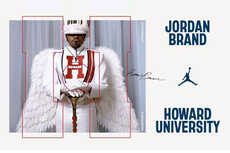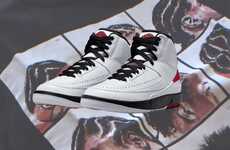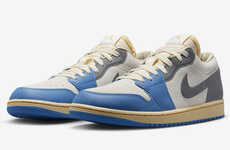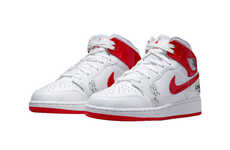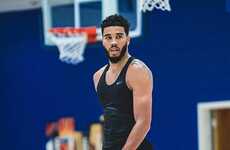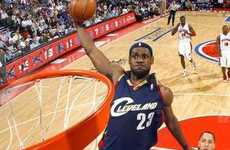
Michael Jordan's Son Begins College Basketball Career
Ben Preiss — November 12, 2007 — Lifestyle
References: usatoday & sportsillustrated.cnn
18 year-old Jeffrey Jordan is a walk-on player for the University of Illinois basketball team on an academic scholarship. That is as low key as he can be considering he is the son of the greatest player to have played the game. At 6’2”, he is four inches shorter than his legendary dad.
Jeffrey knows he will have to prove himself to assure a spot on a Big Ten team that went 23-10 before losing in the first round of the NCAA tournament last year.
We can also look forward to Jeffrey’s little brother Marcus, who is two year’s younger but a bit bigger and is said to have more potential, coming up in the future. The brothers played together at the Loyola Academy, a 98-year-old Jesuit high school in Chicago’s north suburbs.
Jeffrey knows he will have to prove himself to assure a spot on a Big Ten team that went 23-10 before losing in the first round of the NCAA tournament last year.
We can also look forward to Jeffrey’s little brother Marcus, who is two year’s younger but a bit bigger and is said to have more potential, coming up in the future. The brothers played together at the Loyola Academy, a 98-year-old Jesuit high school in Chicago’s north suburbs.
Trend Themes
1. Walk-on Players - Disruptive innovation opportunity: Explore new ways to identify and develop overlooked talent in college basketball teams, potentially finding hidden gems like Jr. Jordans.
2. Legacy Athletes - Disruptive innovation opportunity: Create platforms and opportunities for children of famous athletes to carve their own path and redefine success in their respective sports.
3. Sibling Rivalry - Disruptive innovation opportunity: Develop programs and initiatives that support siblings in the same sport, fostering healthy competition and pushing each other to reach their full potential.
Industry Implications
1. College Basketball - Disruptive innovation opportunity: Employ advanced analytics and scouting techniques to discover raw talent and maximize team performance, regardless of traditional recruiting methods.
2. Athletic Scholarships - Disruptive innovation opportunity: Introduce new scholarship models that prioritize academic achievements alongside athletic prowess, encouraging well-rounded student-athletes.
3. High School Athletics - Disruptive innovation opportunity: Implement training programs and mentorship initiatives in high schools to nurture young athletes and prepare them for success at the college level in various sports.
6.8
Score
Popularity
Activity
Freshness



